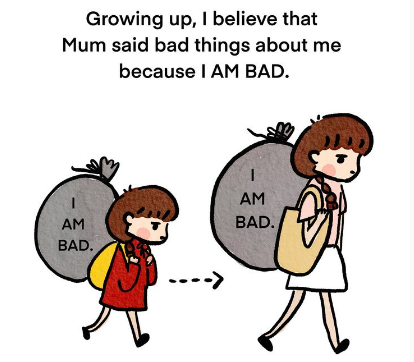Mental Illness and the Habit of Self-Blame: Causes and Solutions
Why do people with mental illness tend to blame themselves? Discover the psychological causes behind this and how to manage it for better mental health.
MENTAL HEALTHSELF-BLAMEOVERCOMING GUILTSTRESS REDUCTION
11/26/20242 min read


The habit of blaming oneself can stem from childhood trauma that carries over into adulthood
Blaming oneself is a common behavior among individuals experiencing mental illness. Excessive and persistent guilt can be a sign of mental disorders such as depression, anxiety, or obsessive-compulsive disorder (OCD). This article discusses the psychological causes behind this habit, its impact on mental health, and ways to overcome it.
Why Do People with Mental Illness Tend to Blame Themselves?
Cognitive Distortions
Mental illnesses such as depression often come with negative and unrealistic thinking patterns. One common cognitive distortion is personalization, where individuals tend to blame themselves for things beyond their control.
Influence of Past Trauma
People who have experienced trauma, such as abuse or the loss of a loved one, often internalize feelings of guilt. They may feel that bad events occurred because of their mistakes or shortcomings.
Social Norms and High Expectations
Pressure from society or family to always "succeed" can make individuals more prone to self-blame when they face failure or challenges.
Critical Parenting Style
Growing up in an environment full of criticism can make a person feel like they are always to blame for problems, even if it’s not true.
Impact of Self-Blame on Mental Health
The habit of self-blaming not only worsens the symptoms of mental disorders but can also trigger:
Deeper Depression: Constant negative thoughts can lead to a sense of hopelessness.
Excessive Anxiety: Guilt can create endless worry.
Social Isolation: The person may withdraw from social situations, feeling unworthy.
Self-Destructive Behavior: This may include self-harm or substance abuse.
How to Overcome the Habit of Self-Blame
Recognize Negative Thought Patterns
Be aware of when you start blaming yourself. Write down these thoughts and examine whether they are true or just assumptions.
Practice Self-Compassion
Learn to be kinder to yourself. Remind yourself that everyone makes mistakes, and this is part of being human.
Psychological Therapy
Therapies like Cognitive Behavioral Therapy (CBT) are effective in changing negative thinking patterns. CBT helps individuals understand how thoughts, emotions, and behaviors influence each other.
Build Social Support
Talk about your feelings with trusted individuals or join support groups. Emotional support can lessen the burden of guilt.
Engage in Mindfulness Activities
Meditation or breathing exercises can help you focus on the present and reduce destructive thinking patterns.
📝Read also: The Benefits of Meditation for Your Body and Mind Health
When to Seek Professional Help
If excessive guilt starts interfering with your daily life or affecting your relationships, work, or physical health, consult a psychologist or psychiatrist. Early intervention can prevent the issue from worsening.
FAQs About Self-Blame
What causes someone to feel guilty constantly?
The causes may include cognitive distortions, past trauma, or excessive social pressure.Is excessive guilt always a sign of mental illness?
Not always, but if this guilt is persistent and disruptive to daily life, it could be a symptom of mental disorders like depression.How can I support a friend who often blames themselves?
Offer emotional support, listen without judgment, and encourage them to seek professional help.What is the connection between trauma and self-blame?
Trauma can make someone feel that bad events were caused by their mistakes, even if this belief is unfounded.Is therapy really effective in addressing self-blame?
Yes, therapies like CBT are highly effective in helping individuals change negative thought patterns and manage guilt.
Blaming oneself is a common behavior in individuals with mental illness, but it can be addressed with the right approach. By recognizing negative thinking patterns, seeking support, and getting professional help, individuals can take steps towards better mental health. Remember that self-blame is not a solution, but a barrier to recovery.
📝Read also: Recommended Cartoon Films for Encouragement
